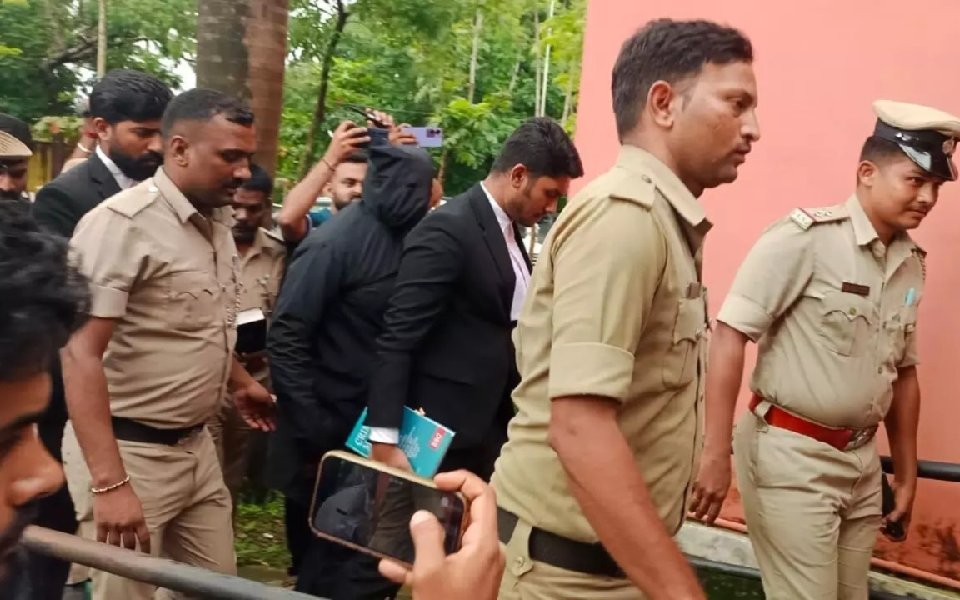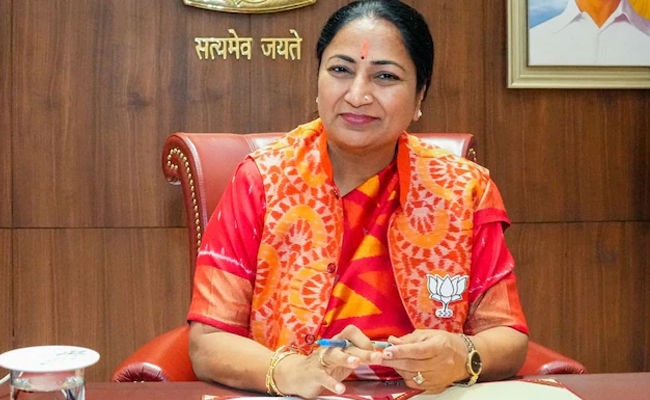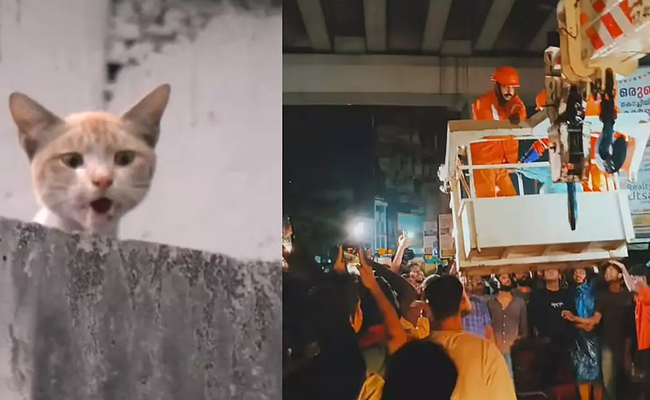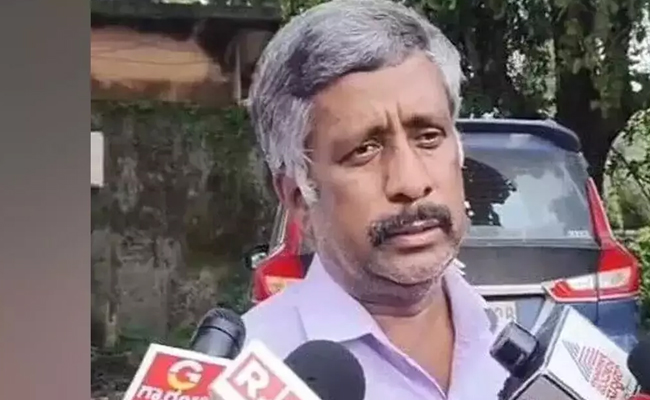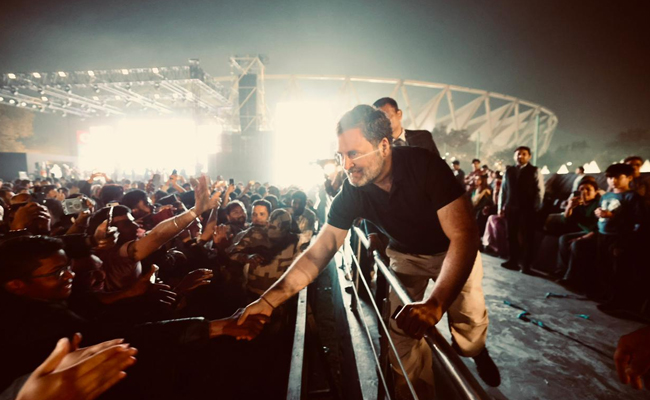Mangaluru: Lawyers representing the key witness in the Dharmasthala mass burial case have criticised the public statement made by Superintendent of Police (SP) Dr Arun K on Wednesday, calling it misleading and dismissive of the complainant’s efforts to bring a dark chapter of history to light.
In a detailed statement issued on behalf of the complainant, advocates Dheeraj S J and Ananya Gowda expressed concern over what they called a “complete misrepresentation” of facts by the district police and said the SP’s comments fail to acknowledge the complainant’s intent, cooperation and vulnerability.
The lawyers pointed out that contrary to what the police narrative implies, the complainant did not approach the authorities initially. Instead, driven by conscience and a fear of divine justice, he came forward on his own and sought legal counsel to confess about the mass burials. The lawyers clarified that there was no active investigation or police interest in these alleged crimes until the complainant initiated contact.
They accused the police of ignoring this crucial background in their public statements, which they said gives a wrong impression to the public.
Responding to the SP’s claim that the release of information to the public compromises witness protection, the lawyers said the complainant never tried to hide his identity to avoid scrutiny. Rather, the decision to share a redacted version of the complaint and FIR through lawyers was taken in good faith to ensure transparency while ensuring the witness's safety.
“The suggestion that the police are now free from their duty to protect him because certain details have been shared is completely wrong,” the lawyers said, adding that this interpretation goes against the Witness Protection Scheme, 2018.
The lawyers also accused the investigating officer of attempting to violate attorney-client privilege by questioning whether the release of the complaint and FIR had the witness’s approval. They called this move a serious legal overreach, adding that it threatens fundamental legal protections available to every citizen.
They questioned the police’s discomfort with media coverage around the issue and said such behaviour creates a chilling effect on people willing to come forward with sensitive information.
Refuting the SP’s claim that the witness’s location is unknown, the lawyers said this was factually incorrect. According to them, on July 14, police officers spent more than four hours recording the complainant’s statement at an undisclosed location. Moreover, on July 13, his temporary address had been formally shared with the police over email.
“The suggestion that they are unaware of his whereabouts is simply not true. The lapse, if any, is from their side,” the lawyers added.
One of the strongest points raised in the statement was about the police's failure to act after receiving clear evidence. The complainant, in his official 164 statement (Section 183 of BNSS) recorded before a magistrate on July 11, had voluntarily handed over human remains from a burial site to the police and forensic team. This was done late in the night and took several hours of coordination.
The complainant, the lawyers said, had expected that the next day the police would accompany him back to the site for a formal inspection and evidence collection. However, no such follow-up has happened even as of July 16.
They called the delay “shocking” and said it indicated a lack of seriousness from the authorities, despite the presence of irrefutable evidence and the witness’s full cooperation.
The lawyers also revealed that the complainant fears for his life and believes that each body he helps recover reduces the motive to eliminate him. “He is not trying to run away. He wants these remains exhumed while he is still alive,” they said, urging the police to act urgently.
Wrapping up their statement, the lawyers made it clear that their client is not trying to create trouble but attempting to expose a brutal historical injustice. They urged the authorities to recognise the courage it takes to do so and not treat the complainant as an adversary.
“The complainant remains available, willing, and committed to assist the investigation,” they said, calling on the police to perform their duties responsibly and without delay.
The statement was signed by Advocates Dheeraj S J and Ananya Gowda, who have now taken charge of the case from their colleagues Ojaswi Gowda and Sachin Deshpande.
Let the Truth be known. If you read VB and like VB, please be a VB Supporter and Help us deliver the Truth to one and all.
Kolkata (PTI): Alleging that her West Bengal counterpart Mamata Banerjee had approached the Supreme Court to stall the SIR exercise to prevent the identification of infiltrators, Delhi Chief Minister Rekha Gupta on Sunday claimed that the people of the state have made up their minds to dislodge the Trinamool Congress from power.
The TMC countered strongly, urging Gupta to "look into her own backyard" and accused her of making absurd allegations against the TMC government without checking facts.
Addressing participants at the 'Nari Sankalp Yatra' organised by the BJP's women's wing at Science City auditorium here, Gupta alleged that the "hands-off" and appeasement policies of the TMC government had allowed thousands of infiltrators to enter the state in recent years.
She claimed that this had put a strain on basic rights such as access to water, electricity, ration, education, livelihood and the right to vote for genuine citizens.
"She wants to perpetuate this and hence is trying to stall the SIR exercise, which aims at identifying and deporting infiltrators. Imagine a chief minister going to the apex court to argue against an exercise meant to ensure free and fair polls," Gupta said.
The BJP leader alleged that appeasement politics had reached an "alarming level" under the TMC regime.
Raising concerns over women's safety, she claimed that women in the state were not secure despite having a woman chief minister.
Referring to the rape-murder of a woman doctor at RG Kar Hospital, Gupta alleged that the state government had failed to respond adequately to such crimes.
She also referred to the alleged rape of a woman medic in Durgapur and another law student on a Kolkata college campus, claiming that criminals had been emboldened to commit brutalities against women.
She alleged that in crimes against women, overall crime incidents and child marriages, West Bengal remained among the top -- "a slur on a state which once led intellectual and social movements and set examples for the rest of the country," she said.
Criticising the state government's welfare initiatives, she said schemes such as Kanyashree were built on "false claims" and asserted that women needed security rather than assurances.
Accusing the state government of blocking central schemes, Gupta alleged that funds worth "lakhs of crores of rupees" had not reached the poor due to non-implementation of programmes such as Ayushman Bharat, PM Awas Yojana and Jal Jeevan Mission by the state.
"You are only interested in renaming projects and taking credit," she said.
Gupta also alleged that the education sector in the state had been adversely affected, saying several state-run schools had closed due to a shortage of teachers and that the government was opposed to the National Education Policy.
Drawing a comparison with BJP-ruled Delhi, Gupta said, "People have already voted out 'Bhaia' (a reference to former Delhi chief minister Arvind Kejriwal). Now it is your turn to bid farewell to 'Didi'." Calling upon women to resist what she termed "strong-arm tactics", she urged them to assert their strength, invoking the imagery of Goddess Durga.
"Bengal has the right to live with dignity, and women have the right to live with dignity," she added.
Reacting to Gupta's allegations, West Bengal Women and Child Welfare minister Shashi Panja accused her of making "absurd allegations" against the Trinamool Congress government ahead of elections.
Panja alleged that during Gupta's tenure in Delhi, several incidents had raised serious concerns, including reports of missing young women and a blast near the Red Fort.
She also criticised the air pollution situation in the national capital, claiming that people were struggling to breathe.
The TMC leader said that despite being in power for a year, Gupta was making "tall claims" instead of addressing key issues in Delhi.
Panja further alleged that the Delhi CM visited West Bengal during elections to "peddle false allegations" against the state government.
Rebutting Gupta, the TMC said in a post on X said, "Madam why did you go off-script again? For your edification, here are the cold, hard facts: In total cases of crimes (IPC + SLL), Bengal ranks a respectable 15th, far safer than BJP-ruled Uttar Pradesh, Maharashtra, and Gujarat, which languish near the bottom."
"In overall crime rate, Bengal sits comfortably at 28th. Who's second? Your own Delhi. Double Engine Gujarat and Haryana grab 4th and 5th as top-tier crime havens," the TMC said.
"In child marriage, Assam again takes the shameful pole position. And yet you dare lecture Bengal? Stop embarrassing yourself, stop the hypocrisy, and maybe fix the rotting mess in your own backyard before pointing fingers at a state that's outperforming your disasters on every key metric," the TMC countered.

